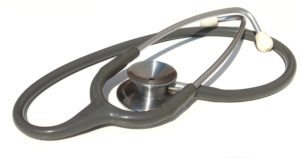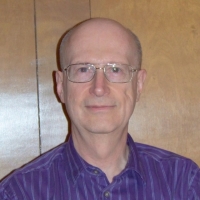Mennonite Health Journal
Articles on the intersection of faith and health
Faith at Work: Practicing Our Profession
Editorial by Paul D. Leichty
from Mennonite Health Journal, Vol. 16, No. 1 – February 2014
What good is it, my brothers and sisters, if you say you have faith but do not have works? Can faith save you? If a brother or sister is naked and lacks daily food, and one of you says to them, “Go in peace; keep warm and eat your fill,” and yet you do not supply their bodily needs, what is the good of that? So faith by itself, if it has no works, is dead. James 2:14-17 (NRSV)
Faith at Work: Practicing Our Profession. This is the theme for Mennonite Healthcare Fellowship’s Annual Gathering 2014 to be held June 13-15 at Laurelville Mennonite Church Center near Mount Pleasant, Pennsylvania. The title was chosen in part because it can have a variety of meanings, particularly for healthcare professionals.
Our Profession. This is the theme for Mennonite Healthcare Fellowship’s Annual Gathering 2014 to be held June 13-15 at Laurelville Mennonite Church Center near Mount Pleasant, Pennsylvania. The title was chosen in part because it can have a variety of meanings, particularly for healthcare professionals.
Faith – Now faith is the assurance of things hoped for, the conviction of things not seen. Hebrews 11:1 (NRSV)
 As healthcare workers, we carry out our daily activities with a certain amount of faith. We see most of our patients or clients because they have a sickness, disease, or other health issue. Because of our preparation, education, and experience, we interact with those persons out of faith—faith that they can become healthier and faith that we have some tools that can help them in that quest for better health. Even though we may not see wellness and health at the moment, for many people we operate out of an assurance that their health will be restored.
As healthcare workers, we carry out our daily activities with a certain amount of faith. We see most of our patients or clients because they have a sickness, disease, or other health issue. Because of our preparation, education, and experience, we interact with those persons out of faith—faith that they can become healthier and faith that we have some tools that can help them in that quest for better health. Even though we may not see wellness and health at the moment, for many people we operate out of an assurance that their health will be restored.
However, even when we have doubts about a person’s recovery, or even when we feel certain that someone is dying, we exercise faith. We carry out a caring ministry in the hope that we can ease pain, offer comfort, minister to feelings of loss and grief, and provide assurance that God cares and offers the promise of eternal life.
As Christians, our faith in God who cares, loves, and heals forms a foundation for the work that we carry out day by day.
Faithfulness — By faith Abraham obeyed when he was called… and he set out, not knowing where he was going. Hebrews 11:8 (NRSV)
The Biblical words for “faith” do not refer to a mental assent to certain doctrines or beliefs. Rather, they have an action component. Faith in God is a trust of God involving a commitment to move forward as God calls even though we don’t see clearly the way ahead. Thus, “faith” has the thrust of “faithfulness,” actions that are consistent with our belief about who God is. God is the ultimate example of faithfulness. We act out of faith and into faithfulness in relationship with such a God.
Thus, our faith in God who cares, loves, and heals leads us into a faithfulness in harmony with the character of God.
Work – Noun: Employment, a place of activity, a setting in which to accomplish something.
Most often, when we say, “at work,” we refer to a place of employment. We spend most of our time on most days of the week “at work.” It is in this setting that we live out much of our life—and much of our faith.
Work – Verb – To carry out the action needed to accomplish something.
In this case, “at work” can carry the meaning of “in action.” When the sign in a highway construction zone tells you that your tax dollars are “at work,” it means that the money is being put into the action of rebuilding a road. Thus, being “at work” is more than just being physically present in a particular place. It is about carrying out meaningful activity in that place.
Faith at Work – Faith in action Considering both “faith” and “work” as action verbs means that we act out of faithfulness to Christ in all that we attempt to accomplish. Our work gets put into perspective as a primary means by which we live out our faith. As the Epistle of James tells us, faith cannot be separated from the action… faith by itself, if it has no works, is dead. To be true faith, our faith needs to be at work—faithfulness in action.
Faith at Work – Living out our faith in the workplace.
Another way to read “Faith at Work” is to consider what it means to live out our faith in the settings in which we work. Faith is not simply a set of beliefs that we affirm in Sunday worship and then set aside for the week on Monday morning. Rather, our faith is to be at the core of who we are, seven days a week, 24 hours a day. Since we spend a major portion of our days at work, we live out our faith in that setting. Our faith informs and guides us in the daily relationships that we have in the workplace. Our faith informs us in the decisions we need to make about patients and clients, colleagues and employers, systems and communities in which we work.
Faith a t Work: … Our Profession As Christians, persons of faith, we choose our work, our “line of work,” or profession, based on the gifts and interests God has given us. We want our work to be in the service of not just employers, not just patients or clients, not just local communities. We are in God’s work, in service to God through our professional life.
t Work: … Our Profession As Christians, persons of faith, we choose our work, our “line of work,” or profession, based on the gifts and interests God has given us. We want our work to be in the service of not just employers, not just patients or clients, not just local communities. We are in God’s work, in service to God through our professional life.
When we talk about our profession, we may say, “I am a nurse,” or “a doctor,” or “a physical therapist,” or “a social worker.” All of those are professions, ways of being at work that enable us to put our faith into action. Each of us is learning and developing skills for a particular aspect of service to God.
Practicing – To make a habit
Neither faith/faithfulness nor work come automatically. They take practice. Practice can have two connotations. When I was a child, I practiced the piano in order to learn to play a piece for the recital. Sports teams spend far more time in practice than in playing the game. Practice, in this sense, is about preparation, getting ready for meaningful game or performance.
 Yet, we talk about “the practice of medicine” or “the practice of psychology.” This kind of practice is not preparation or experimentation, but actually carrying out the responsibilities of our profession. We also may talk about clinical “practices” or office “practices” ranging from sterile technique and washing our hands to how we bill patients or clients and their insurance companies for services rendered.
Yet, we talk about “the practice of medicine” or “the practice of psychology.” This kind of practice is not preparation or experimentation, but actually carrying out the responsibilities of our profession. We also may talk about clinical “practices” or office “practices” ranging from sterile technique and washing our hands to how we bill patients or clients and their insurance companies for services rendered.
The common thread here is the development and carrying out of habits. We become educated and learn to develop the habits needed for our profession. Then, in carrying out our professions, we reinforce those habits, and, in some cases, modify or learn new habits.
In our spiritual lives, we also develop habits. Some of those habits are prayer, scripture reading, public worship, and nurturing relationships. By consistently practicing those habits, we are more ready for the crisis points in our lives where the habits need to be automatic.
Practicing Our Profession – Faithfully carrying out our work. Most of the time, when we say that we are “practicing our profession” we mean that we are carrying out the activities of the particular professional discipline that we have chosen. We tend to differentiate the active practice of our profession from what comes before and after. Before we “go into practice” we study and become educated in our chosen profession. As noted above, we are in a preparation phase.
After a period of practicing our profession, many of us retire. Then we say, “I am no longer in practice.” It is not that we have ceased to be professionals, but we are no longer practicing our profession, no longer actively reinforcing the habits that made us professionals.
Neither does that mean that we suddenly lose the skills that we practiced. Many habits practiced over a lifetime will remain ready to be picked up again after a period of disuse. Yet, over time that disuse will eventually mean the loss of that skill or practice.
For most of us, the markers between education, practice, and retirement are not that clean. We ease into practicing our profession as students and we ease out of practicing our profession in our early retirement years. In fact, many of us can put our skills to use in our retirement years in new and creative ways since we don’t need to think about earning a certain income through our profession.
Practicing Our Profession – Doing what we say.
Our life of faith is first expressed publicly in a “profession” of faith. For Mennonites and many other Christians, this usually happens at baptism. It’s not that we don’t have faith before baptism, but at baptism, we let our faith be known to others. We profess our faith and make it public.
From then on, our words and actions, our work and worship, all of our activities and life itself become an ongoing profession of our faith. Having signified publicly our loyalty to Jesus Christ, our lives express our faith in him. Our choice to express our faith through the practice of a healthcare profession becomes a part of who we are in Christ. So “practicing our profession” becomes more than just carrying out our work. It is another way of talking about our faith in action. Who we say we are, who we profess to be, gets carried out in the “practice,” the habits of everyday living.
 Faith at Work: Practicing Our Profession – The conversation continues.
Faith at Work: Practicing Our Profession – The conversation continues.
This, then, is the theme for the Mennonite Healthcare Fellowship (MHF) Annual Gathering, the weekend of June 13-15, 2014 at Laurelville Mennonite Church Center near Mount Pleasant, Pennsylvania. We want to explore the many aspects of what it means to live out our faith more fully through the professions to which God has called us. We hope you will come and add your presence and your insights into our common work as Anabaptist healthcare professionals.
About the author
 Paul D. Leichty, M.Div. is Executive Director Emeritus, having served as the first Executive Director of Mennonite Healthcare Fellowship (MHF) from Sept. 2011 through May 2020. Paul has served as a pastor, church musician, computer support person, disabilities advocate, and administrator/organizer of a number of church-related ministries. Paul also served as Executive Director of Congregational Accessibility Network which was transformed in 2022-23 to Disability Ministry Network. He is a member of Agape Fellowship of the Mennonite Church in Williamsport, Pennsylvania where he lives with his wife, Twila Charles Leichty.
Paul D. Leichty, M.Div. is Executive Director Emeritus, having served as the first Executive Director of Mennonite Healthcare Fellowship (MHF) from Sept. 2011 through May 2020. Paul has served as a pastor, church musician, computer support person, disabilities advocate, and administrator/organizer of a number of church-related ministries. Paul also served as Executive Director of Congregational Accessibility Network which was transformed in 2022-23 to Disability Ministry Network. He is a member of Agape Fellowship of the Mennonite Church in Williamsport, Pennsylvania where he lives with his wife, Twila Charles Leichty.
